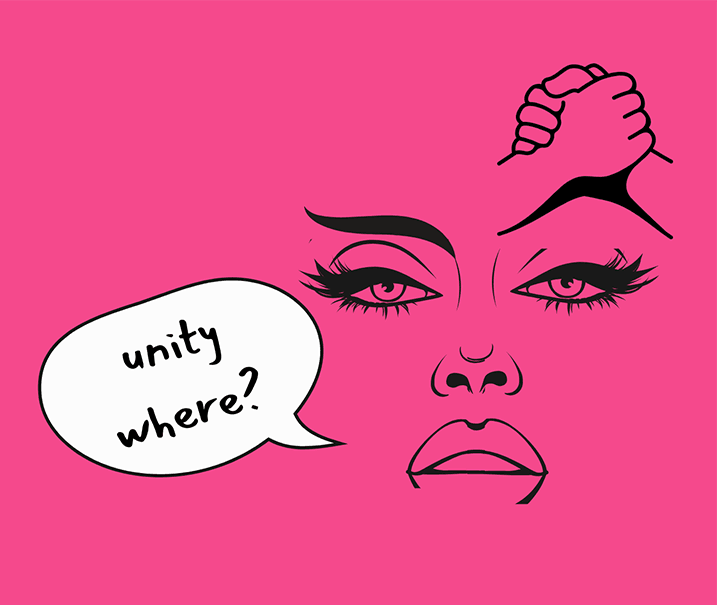Marcos and Duterte aren’t the only ones. Here’s what has happened when those meant to head a state ended up butting heads.
The executive branch of the Philippine government has failed to provide one of the main things it promised when it campaigned for power before the 2022 elections: unity.
The difference between then and now is staggering (as noted by social media users and various networks.) We had then-Davao Mayor Sara Duterte professing her admiration for her running mate (then former senator Ferdinand Marcos Jr.) to now Vice President Duterte cursing Marcos Jr., his family, and his allies. We went from her thanking him for allowing her to use his chopper, to her saying that she already hired someone to kill him should anything happen to her. We went from “I love you, BBM,” to “p*tang ina niyong lahat.”
Disses have been tossed between the once-called Uniteam tandem and now that the “dis” comes before the “unity” of this pairing, we are caught right in the middle, watching barbs fly past us. And in response, some have sat down, brought out the popcorn, and felt the satisfaction of saying they were right.
Why not? They warned that this would happen. During the campaign for the 2022 elections, the more left-leaning, progressive side of the population has accused this pairing of dishonesty. Aside from bringing up their hypocrisies, their collectively poor track record as politicians, and the many other reasons why they shouldn’t be chosen over the team of former Vice President Leni Robredo and former senator Kiko Pangilinan, they stressed out that these two “spoiled brats” (as news outlet Vice once wrote) have a temporary alliance that will unravel once they get power. And we will have to bear with it.
Thus far, it’s been a war of words: hardly a breeze driving past us. But history has shown that leaders and their second-in-command don’t always see eye to eye. And when they throw more than words at each other, the people in the middle–the ones they were put in power to protect—tend to feel the brunt of it.
Thomas Jefferson and John Adams
The first example has been immortalized in the hit musical Hamilton which portrayed the bitter feud between John Adams and Thomas Jefferson. Back in 1796, the U.S. had this awkward system where the runner-up in the presidential race became Vice President. Adams, a Federalist, and Jefferson, a Democratic-Republican, disagreed on just about everything: foreign policy, the size of government, and whether or not France was the cool kid on the block.
Their rivalry birthed a system wherein the president and the vice president run as a tandem representing the same party. Because of this, a vote for a presidential candidate becomes a vote for the VP candidate. This made future VP elections less awkward. It also provided some level of stability since it forced the development of two strong, well-defined parties and institutions in America.
The side effect though is an unofficial sense of rigidity in the country’s politics. There are many instances now when people are forced to either abstain or back a party whose policies they don’t completely support because, more often than not, only candidates that belong to the two dominant parties have a chance of winning. Moderates are now more or less silenced by the extremes of Republicans and Democrats. Third-party figures have more or less been reduced to nuisance candidates.
Andrew Jackson and John C. Calhoun
Andrew Jackson holds the dubious honor of being the first US President to be impeached as well as for being a pugnacious individual having fought numerous duels in the course of his life. His relationship with his Vice President John Calhoun was no less turbulent.
The two men started out as friends but eventually fell out over issues like states’ rights, especially during the Nullification Crisis when Calhoun thought states could just ignore federal laws they didn’t like. Jackson said, “Not on my watch,” and threatened to use the military. The feud was so bitter that on his deathbed, Jackson said one of his regrets in life was not being able to hang Calhoun.
Calhoun became the first VP to resign. Jackson probably didn’t even send a “sorry to see you go” card. Furthermore, all the time they spent fighting wasn’t used to actually better the country they were fighting over.
Salva Kiir and Riek Machar
As the Washington Post once wrote, Salva Kiir Mayardit and Riek Machar Teny Dhurgon are “an unlikely pair” to lead the then-new nation of South Sudan.
Kiir was a field commander; a man in cowboy hat with little formal education. His former Vice President Machar, meanwhile, had a doctorate from the UK and would often be seen walking around in a suit. There were striking differences between them and soon enough, they found themselves on opposite sides divided by much suffering in between.
In an article published by Voice of America, Jok Madut Jok, the head of the South Sudan think tank Sudd Institution said that the rift may have started before South Sudan was fully independent. At this time, Machar who was in an alliance with Kiir saw himself more as a fitting leader who would, at times, undermine his ally. On July 2013, after South Sudan gained its independence, Kiir conducted a cabinet purge which saw Machar’s dismissal, and in response to this, Kiir was accused of being heavy-handed and undemocratic.
On December of the same year, Kiir accused Machar and 10 others of plotting a coup d’état which Machar denied. The latter then fled to Sudan People’s Liberation Movement-in-Opposition (SPLM-IO) and soon after, violence escalated between the group and the Sudan People’s Liberation Movement (SPLM) led by Kiir.
On February 22, 2020 a unity pact was formed between the two warring leaders but before it got to that point, more than 400,000 people had already been killed. About 10 percent of them were children. The fighting which also affected the south of the country crippled its agriculture leading to a famine in 2017 that affected over 6 million. This also devasted the country’s economy.
Daniel Noboa and Veronica Abad Rojas
Political landscapes are rarely ever stable but they are even more so when two of its supposed heads are butting heads. Example? The ongoing feud between Ecuador’s President and Vice President.
President Daniel Noboa is at odds with his second-in-command: Vice President Veronica Abad Rojas. The two already have their differences with Noboa being something of a centrist with progressive beliefs regarding some social issues while Abad is a conservative who has shown sympathy for the likes of Donald Trump. Still, the two ran together and won in 2023. Taking over what’s left of then-President Guillermo Lasso’s discontinued reign.
It is unclear what started the feud but Noboa has been accused of isolating Abad from his administration when he immediately sent her to Israel to act as a special peace envoy meant to help in de-escalating tensions in the wake of the conflict between the Israeli government and Hamas. Abad saw this as her banishment into a place of war and a threat to her life. Her accusations that she is being politically persecuted intensified when she was suspended for 150 days without pay after Noboa’s administration had her transferred to Turkey and she supposedly failed to arrive before the date she was supposed to—thus constituting a disciplinary “offense.” Abad said that she was not prepared to leave for Turkey and that Ecuador’s government suggested that she leave her children in Israel alone.
Meanwhile, Abad has been accused of being disloyal to Noboa, supposedly conspiring with opposition parties. She has been branded an enemy of the state by Noboa’s allies. Noboa, who also plans to run for reelection, is also not fond of the idea that in order to campaign, he must hand over the reigns to Abad as per Ecuador’s election rules.
These two have been at each other’s throats for a while. And all of this was happening while Ecuador faced numerous challenges: from security threats to energy problems.
Winners and losers
In a number of these feuds, there weren’t any clear winners but there were clear losers.
In the United States, the weaknesses of their supposed two-party system have been exposed time and time again with a number of people refusing to participate in the electoral process because of the limitations in options. In South Sudan, the country has failed to completely bounce back since the violence unleashed by the heads of their then-young state. And in the Philippines, budget controversies, security concerns and normal everyday struggles continue while the two people who campaigned under the banner of unity are at each other’s throats.
There is an African proverb that was made specifically for this type of situation: “when elephants fight, it is the grass that suffers.” The people tend to be the grass; they are the ones who tend to lose—those who get caught in the middle.
Grass, however, is not without power. It can be resilient, capable of surviving even after being bent out of shape and, at times, it can benefit when the beasts that trampled them perish because of their conflict.



